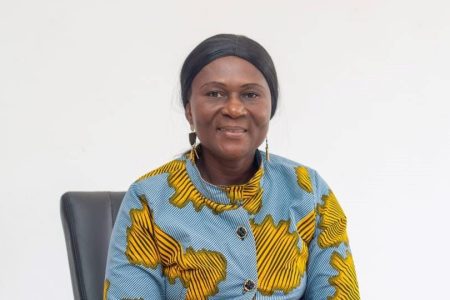The National Folklore Board is asking the public to choose one traditional dish as Ghana’s national food in commemoration of this year’s World Folklore Day.
The Board, under the auspices of the Ministry of Tourism Arts and Culture says that the exercise will help safeguard Ghana’s intangible cultural heritage elements.
The Board in a press statement said that the exercise is to provide the Board with enough information and support in its attempt to nominate one main traditional dish for possible enlisting on the United Nations Educational, Scientific and Cultural Organization (UNESCO) Representative List of Intangible Cultural Heritage in the near future.
The public is encouraged to participate in the exercise by following the link: https://forms.gle/tLyYjCizt3bNpgmC9.
The list of foods includes aprapransa/akplijii/akpledze; fufu and soup, banku and okro or pepper with fish, tuo zaafi; ampesi and abom; kenkey and pepper with fish; waakye; Ghana Jollof; akple and okro soup; as well as gari and beans/ yɔ kɛ gari/ red-red.
According to the board, there’s a need to protect and promote the Ghanaian heritage as it safeguards Ghana’s intangible cultural heritage and a Ghana’s national food is an integral part of that.
The Board further encouraged Ghanaians to observe the World Folklore Day 2023 for a week (August 22 – 27) with Ghanaian Highlife, palm wine music, African music, traditional foods, and wear made in Ghana outfits.
The National Folklore Board noted that it has submitted a dossier of the Traditional Woven Textiles, Kente (Craftsmanship of Kente Weaving) to UNESCO for possible enlisting onto the UNESCO Representative List of Intangible Cultural Heritage and has received some positive feedback.
“The Board anticipates having the element enlisted in 2024. The Board is also submitting a periodic report this year to UNESCO on the safeguarding intangible cultural heritage elements in Ghana,” it added.
The National Folklore Board is the statutory agency in Ghana responsible for the administration, registration, promotion and protection of Ghanaian folklore as well as the implementation of the UNESCO 2003 Convention for the Safeguarding of Intangible Cultural Heritage of which Ghana is a signatory.
Folklore or intangible culture refers to ways we express our culture which includes foodways, music, dance, art, designs, names, symbols and signs, performances, ceremonies, architectural forms, handicrafts and narratives, languages or any artistic cultural expressions.
- Friday, May 9, 2025 Newspaper Headlines - 9 May 2025
- Adangabey brightens rural kids’ future from his wheelchair - 9 May 2025
- Stanbic donates ICT equipment to UHAS for digital learning - 9 May 2025

